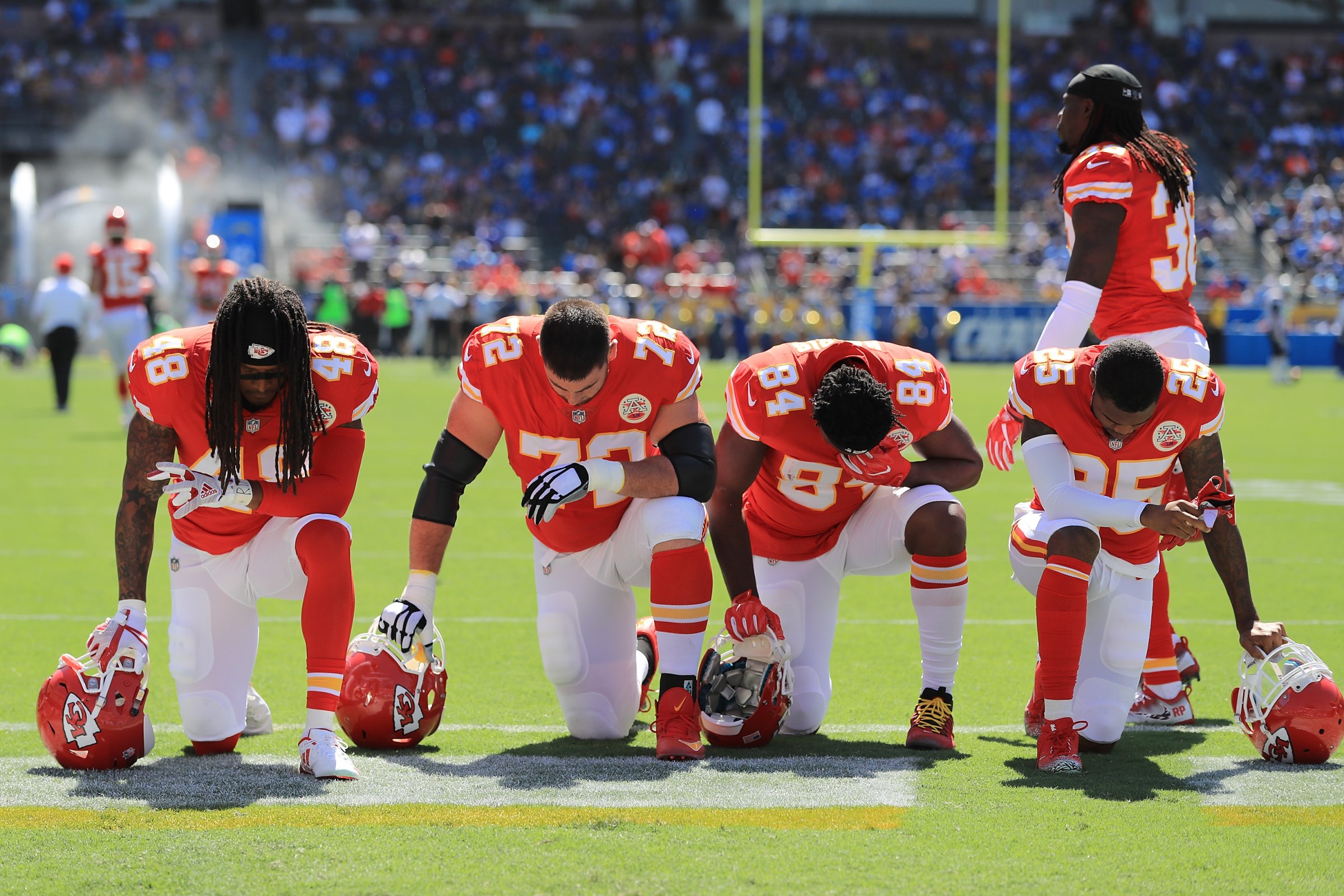
President Trump continued his verbal war with the NFL on Tuesday with a tweet questioning whether the league should continue to receive federal tax breaks while its players protested during the national anthem.
The only problem? The “massive tax breaks” the NFL is supposedly receiving could be characterized as, well, “fake news.” While the NFL was once considered a non-profit by the IRS, that hasn’t been the case for more than two years.
In April of 2015, the NFL announced it was voluntarily relinquishing its tax-exempt status. The motivation was privacy and public relations, not altruism. As a tax-exempt non-profit, the NFL was required to disclose the compensation of some of its highest paid employees, including Commissioner Roger Goodell, who made $44 million in 2012, and $35 million in 2013. Goodell’s earnings subjected him to criticism. In a memo to NFL teams, Goodell called the tax-exemption a “distraction.”
Read More: Inside Donald Trump’s Latest Battle with the NFL
NFL officials concluded that the economic value of the tax-exemption wasn’t worth the headaches, particularly since many league critics tended to characterize all the NFL’s business as tax-exempt. In actuality, an overwhelming majority of NFL income was, and continues to be, subject to taxation. Individual teams generate the bulk of the NFL’s revenues, which are roughly $14 billion annually. The NFL league office was tax-exempt, but it accounts for a mere fraction of that haul: just $9 million in income during the 2012 tax year, for example.
That’s not to say NFL teams don’t benefit from some level of government support. Local government subsidies for stadium construction, for example, are fair fodder for debate across all pro sports: countless economic studies have shown that local taxpayers rarely see a return on big-ticket pro sports investments. But that’s not what Trump appeared to be calling-out. His tweeted gripe seemed directed at a tax exemption that no longer exists, and never was as substantial as critics contend when it did.
More Must-Reads From TIME
- Dua Lipa Manifested All of This
- Exclusive: Google Workers Revolt Over $1.2 Billion Contract With Israel
- Stop Looking for Your Forever Home
- The Sympathizer Counters 50 Years of Hollywood Vietnam War Narratives
- The Bliss of Seeing the Eclipse From Cleveland
- Hormonal Birth Control Doesn’t Deserve Its Bad Reputation
- The Best TV Shows to Watch on Peacock
- Want Weekly Recs on What to Watch, Read, and More? Sign Up for Worth Your Time
Write to Sean Gregory at sean.gregory@time.com